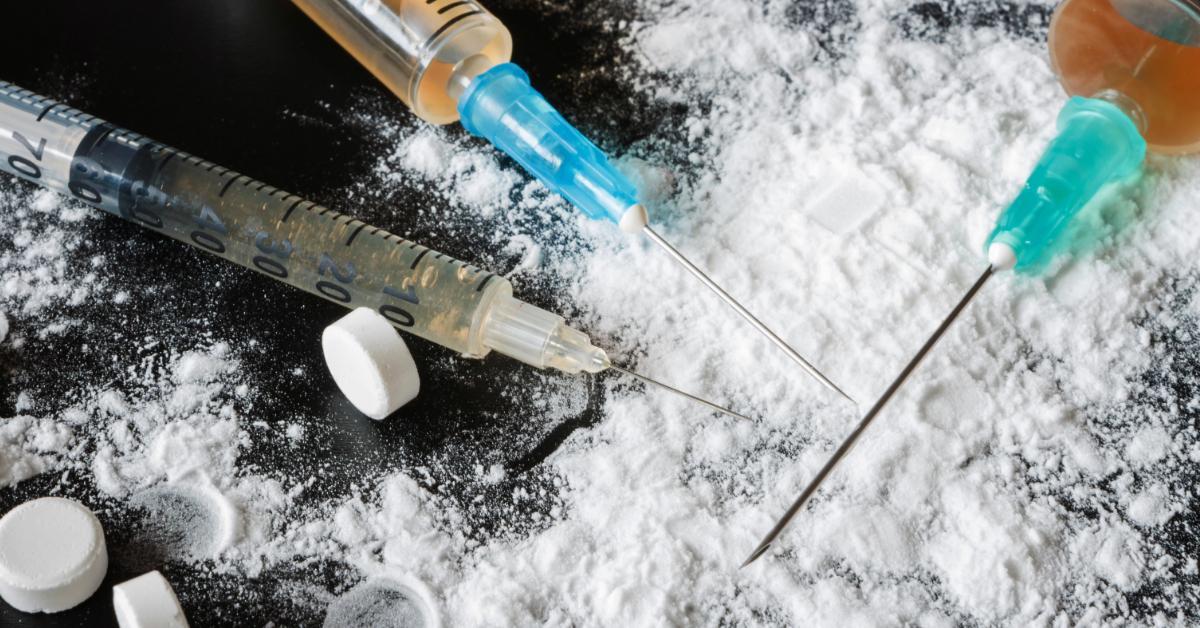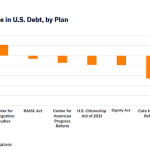
Not many people know that Oregon decriminalized all drugs through a ballot initiative. The Wall Street Journal recently ran an article: “Oregon Decriminalized Hard Drugs: It Is Not Working.” The question here is, why not?
In 2020, the State of Oregon decriminalized all drugs, including hard drugs such as heroin, crystal meth, which you will remember as the centerpiece of the hit series Breaking Bad, and fentanyl, a highly dangerous synthetic opiate. Fentanyl is another example, really the latest step-product, of the war on drugs.
Prior to decriminalization, if you were caught possessing one of these drugs you would be arrested for possession. Oregon was also on the forefront of legalizing cannabis for medical reasons in 1998 and for recreational purposes in 2014. Under the new decriminalization law, you ticket, small fine, and a phone number for help getting rehabilitation services.
This amounted to virtually no deterrence for drug addicts and basically a waste of time for the police. In fact, drug use has become much more visible. It has been bad for businesses and communities. Very few people took advantage of the free rehab services that were made available by the state government.
The police initially issued more than six thousand tickets, but only ninety-two people bothered to call and talk to anybody about getting into rehab. If you didn’t call, there was supposedly a $100 fine. But even that wasn’t enforced. It costs the police more than that to find the violators and homeless drug addicts tend to be tardy in paying such fines. They also are found running around saying, “Please put me into rehab.” Arrests for all drug-related offenses have decreased significantly from eleven thousand in the state to four thousand.
Not surprisingly, the results measured at hospitals have been bad. Fatal overdoses have increased by 23 percent. Overdoses not resulting in death in the City of Eugene have increased over 100 percent.
My own work points to the fact that prohibition results in more “hard” or potent drugs and more dangerous drug types, all of which are not commercially produced, but made and distributed under black market or illegal conditions. Such drugs are low in quality and safety and high in potency and toxicity and are therefore more harmful and deadly than commercial made and distributed products. Decriminalizing drugs did nothing to address this problem.
What decriminalizing drugs does do is to allow drug addicts to consume without legal penalties. As a result, we would expect more consumption and for consumers to be more public and less secretive about their consumption. Not surprisingly, homeless drug addicts are more apparent in public places, there is increased loitering, sleeping on park benches and in front of businesses. Littering of all sorts has become a nuisance, people are passed out on city streets and addicts walking around like zombies has become a common sight.
The visibility problem of public drug use and its externalities is a social problem, not one of the “free society.” Prohibiting drug use on public and private property is not an antilibertarian point of view. If it’s my home, I make those decisions about who and what can be consumed on my property. If it’s my place of business, I get to decide who and what. Is consumed on my property. And in my city, it’s the voters and the citizens that set those rules and set the enforcement.
And that’s where things have fallen through in the State of Oregon. Here the state and cities promote the homeless problem and the rights of drug addicts and the homeless over those of the good citizens. Some people have complained that the street people have more rights than the taxpayers.
This is not a prohibition-related problem, but rather stems from the socialist mindset of Oregon voters. A failure to “police” public areas, in effect, sidesteps the institutions of a free society, such as private property, which would clean up these other public aspects of drug addiction. Not surprisingly, there are now efforts to recriminalize these drugs.
One bookstore owner and self-acknowledged Deadhead, and avowed communist, voted for this measure to decriminalize drugs. She thought that things would be different and that she and others now think that the “laboratory of democracy” has failed them.
Essentially, this ballot measure to decriminalize hard drugs exposed the ideological problem of the State of Oregon. Oregon did not decriminalize hard drugs because they are libertarian, liberal, or antigovernment. They did it because their ideological mindset leans very heavily socialist and communist and other forms of statism in general.
One unavoidable problem they have because of national drug prohibition, I wrote about it in an article called “Welcome to Needle Park.” If you legalize a drug in a tiny, isolated location surrounded by a large area where it is still illegal you will attract consumers to that location. You could very easily imagine that drug addicts in Seattle and San Francisco, at least a few of them, might relocate to Portland to consume the drug of their choice or addiction. If the police are forbidden to harass drug addicts for “bad behavior” then even more will be attracted.
The solution in Oregon is not to recriminalized drugs, but rather for society to exert its will. And when I say society, I’m talking about the Nexus of private property. Owners must exert their will on their homes, their businesses and as voters, in public places. This is something that must be imposed on the public sector because that’s where the problem lies, and the public sector must establish rules for public property or better yet, they must privatize or sell public property so that it’s controlled by private property owners.





